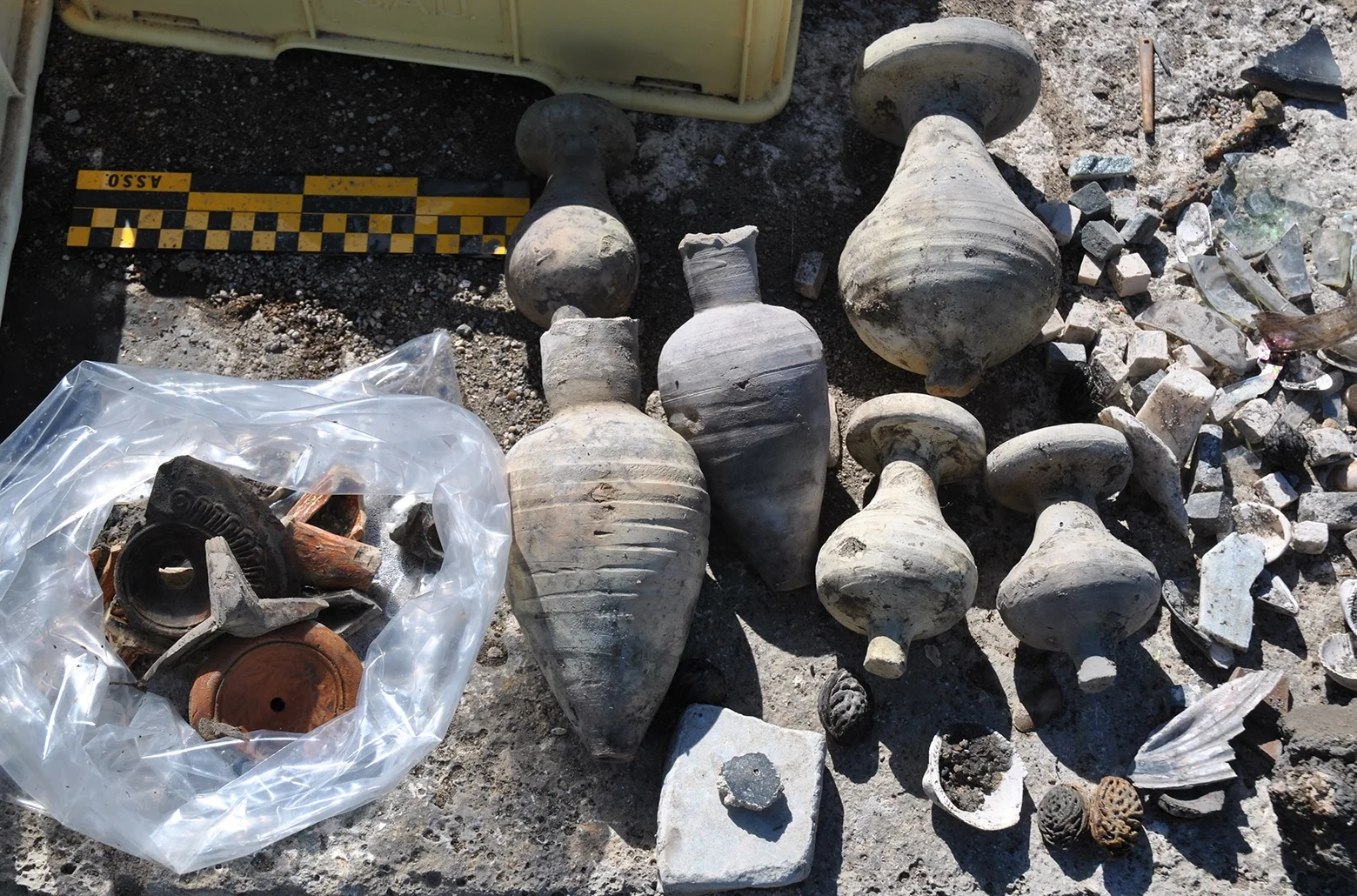Archaeologists have uncovered a trove of Roman objects linked to ritual feasting at Ostia antica.
Ostia Antica is an ancient harbour town located at the mouth of the Tiber River. The harbour served as the main port for Rome, transporting goods and people from the coast along the Via Ostiensis.
Archaeologists recently excavated the area of Regio I – Insula XV, a “sacred area” or precinct housing several temples and sanctuaries. At the centre is the temple of Hercules, a 31 x 16 metre monument which dates from the Republican Era.
Excavations have revealed a substantial well situated at the base of the temple of Hercules. Upon draining the well, it was discovered to hold a significant collection of objects dating from the 1st to 2nd century AD.
Among the objects are various ceramics, miniatures, lamps, glass containers, fragments of marble, and burnt animal bones (pigs and cattle). According to the archaeologists, the trove corresponds with ritual feasting associated with cult at the temple.
In a press statement by the Ministry of Culture: “The discovery of burnt bones confirms that animal sacrifices were carried out in the sanctuary, while the common ceramics, also bearing traces of fire, indicate that the meat was cooked and consumed during banquets in honour of divinity. The remains of one or more ritual meals were thrown into the well, the last ones probably when their function had ceased.”
Header Image Credit : Ministry of Culture
Sources : Ministry of Culture





